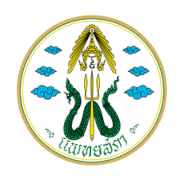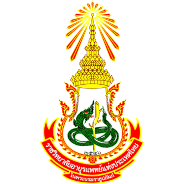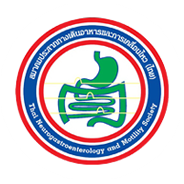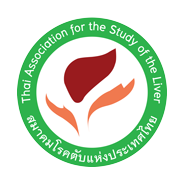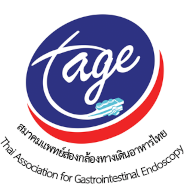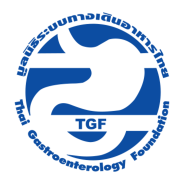ABOUT GAT
In memory of Vikit Viranuvatti
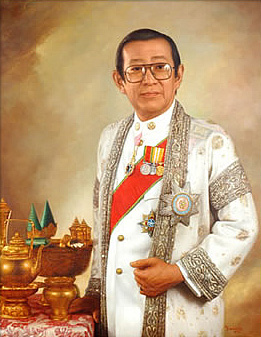
Professor Vikit Viranuvatti, MD.,M.P.H.T.M. (Tulane),
DSc (Med.), FRCP (Glas.), FRCP (London), FRACP,
FACP, DSc (Med) Hons.
In memory of Vikit Viranuvatti, Father of Thai Gastroenterology
Vikit Viranuvatti was a pioneer of modern medicine and the virtual father of gastroenterology in Thailand. His achievements, especially in tropical liver diseases, were recognized worldwild. He published more than 219 articles and several international book chapters dealing with liver cancer, amoebiasis, hepatic abscess, hepatitis as well as topics in medicine education.
Vikit Viranuvatti was born in 1923 from a middle class commercial family of Thai/Chinese descent. He had his primary and secondary education at the prestigious Dhebsirin School of Bangkok where he on a coveted scholarship. When he took his nati onal high school examination, he came out as the top ranking graduate for the entire country in 1938. He then entered Siriraj Medicine School with a scholarship from the Ministry of Education and graduated with a Kings Gold Medal.
He served his internship at Mt. Vernon Hospital., New York, followed by further training and a Master’s degree in Public Health and Tropical Medicine at Tulane University, New Orleans. His Masters thesis won the “Best Thesis Award” and a Golden Key form Eta Chapter Delta Omega Society in 1950. He was chosen in later years as an outstanding alumnus by Tulane University. Viranuvatti returned to Siriraj Hospital to be a young and very popular instructor in gastroenterology. He was instrumental in initiating a congenial and relaxed teaching and conference environment for students and residents similar to what he had experienced at Tulane. This was greatly appreciated by all of his students with whom he maintained close personal contacts thought his life.
None of his staff were embarrassed or intimidated from consulting him not only in professional but also personal matters. This led him to become the youngest ever full professor of medicine at the age of 38 years. This has been surpassed only once in the many years since. During his entire service and up to a few months before his death in 2001, he joined GI Grand Rounds, sharing his vast expertise with young staff. His primary but not only interests focused on liver diseases, particularly cirrhosis and hepatocellular carcinoma. He published a seminal paper entitled “Primary carcinoma of the liver in Thailand: an analysis of 90 cases”, which was presented at the first World Congress of Gastroenterology in Washington in 1958. It was and still is wildly quoted.
His insatiable curiosity extended to diseases caused by poor nutrition and parasites which were then still abundant in Thailand. The field which he defined was later termed “Tropical Gastroenterology”. His vast collection of slides and radiographs of various rare manifestations of these parasitic and other diseases was well know and often the center of invited lectures abroad. He wrote several Thai textbooks of gastroenterology and received the “Best Textbooks Award” from Mahidol University in 1976. His Thai book “Hints on gastroenterology for medical students, interns, residents and physicians” (1966) and “Handbook of gastroenterology” (1967) were used by virtually all Thai medical students and residents at that time. Viranuvatti was won of the first Thai educators who were invited to write chapters in international textbooks. He contributed to the forth volume of Pepper and Schaeffner’s “Progress in liver diseases” (1971) chapters “Cholera, shigellosis and salmonellosis” and for the “Textbook of Gastroenterology” edited by Bockus as well as for the “Oxford Textbook of Medicine” a chapter called “Gastroenterology in South East Asia”. Powel and Pipers books “Infectious Disease of Gastroenterology” also contained a chapter by Dr. Viranuvatti.
Professor Vikit Viranuvatti (or Adjarn Vikit as he was best know) had other skills as well. His dinners and garden parties were special events and full of good food and fun. He was and amateur magician and could entertain any group with his tricks. We remember once special event at his home. He hosted a very senior team from the American College of Physicians for a seminar in Bangkok. Once American professor had a beautiful young wife attired with a well cut-out dress. Vikit produced a card trick. He had the audience select once card which he then asked the lady to hide on her busom for one minute. He identified it promptly when laid out on a table with him by closely inspecting and selecting the card. We asked him later how he did it and if he was not afraid to loose face, and we where told “did you not smell the parfeum on her”. I identified the card with my nose. Adjarn Vikit was also a linguist. He spoke fluent Chinese and did quite well in French and German, particularly after a few glasses of wine.
Professor Viranuvatti was a favoured consultant at the US Army Hospital during the Viet Nam war when liver abscess, amoebiasis and tropical sprue were often seen in American soldiers serving in this region. Being a consultant, he was also a teacher and many young army doctors left for home with thankful thoughts of him. Dr. Viranuvatti remained a popular figure in medicine well into his retirement. On two occasions when the American College of Physicians conducted local seminars, he was invited to give his “show and tell” of “fascinoma” sliders and let the audience guess the diagnoses. A very harsh and dictatorial Thai military government resulted in many young university students to be misled and flee to the jungle as insurgents; often under the influence of communists. He and many of his students were active in promoting peace and honest government which was not always to the liking of the “Generals” of that time. When the Viet Nam war came to an end and the Thai military dictatorship was thrown out (mostly by a university student revolution), almost all of the students came back home. Several were medical students. He was then very influential in bringing them back to the universities, often over the opposition of conservative older faculty members. Several of these youngsters are now in high position in academia or administration. Viranuvatti also participated in administrative and government activities later in his life. These included serive in the Thai National Legislature and Senate as well as on many government committees.
To list all of Viranuvatti accomplishments would make this essay far to long. Here are some of the most important ones: Chairman of Medicine the Department of Medicine and later Dean of Medicine at Siriraj; Fellow of the Royal Society of Tropical Medicine and Hygiene (UK) 1950; First Thai Committee Member of the Research Council of the “Organization Mondiale de Gastroenterologe” in 1962; Fellow of the Royal Colleges of Physicians of England and Glasgow (1970); Founding Member of the Digestive Disease Foundation of America (1971). Fellow of the Royal Australasian College of Physician (1972); Diplomate of the American Board of Proctology(1971); Fellow of the American College of Physician(1972); Chairman of Organization Committee of Asia Pacific Society of Disease of Liver (1975); Councilor of the World Organization of Endoscopy (1981);President of the Asia Pacific Association of the Study of Liver (1993); Member of the Council of the Japanese Society of Gastroenterology. He was a visiting lecturer at Queensland University in 1969, at the Western Infirmary Hospital at Glasgow and at University of Alberta, Edmonton Canada in 1988.
Even in his seventies, he accepted many lectureships at international conferences. Among many honors and awards, he received Thailand’s Highest Decorations from H.M. King for distinguished scientific achievements in 1962, as well as the “Verdienstkreutz” (Cross of Honor) from the German President. He received an honorary PhD in Medicine from Chiengmai University in 1970 and from Mahidol University in 1974. He was married to Lady Cha-umsri Viranuvatti (still alive) and had one daughter, Mrs. Nathinee Sriyuksiri (married to a business man). He will be long remembered by his many students and friends in Thailand and abroad. He is already a permanent figure in the “indexed” literature of “Tropical Gastroenterology”.
 EN
EN
 TH
TH